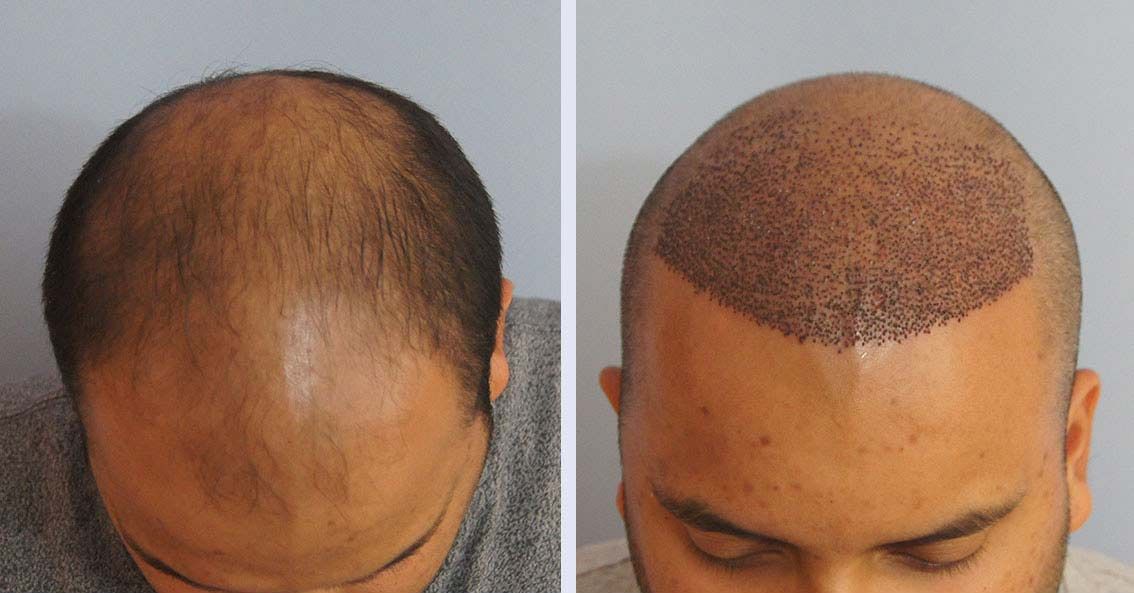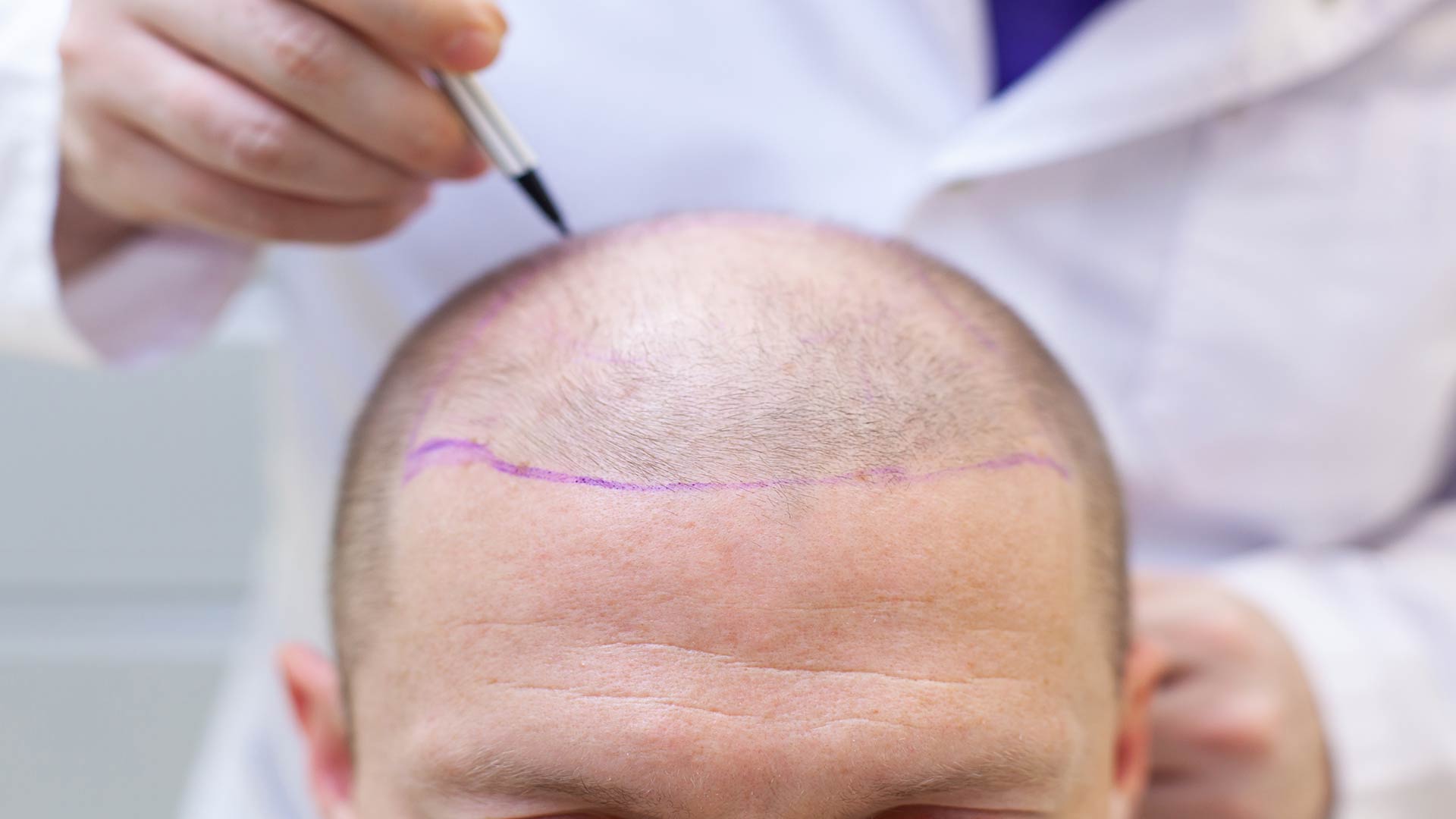Every day it seems like we lose a few strands of hair, but have you ever wondered why some people experience more serious hair loss? Hair loss can be caused by a variety of factors, from genetics to hormonal imbalances to stress. Understanding the basics behind hair loss can help you take proactive steps to keep your locks healthy and full. In this blog post, we’ll break down the most common causes of hair loss and provide tips for preventing and treating it. So sit back, grab a cup of tea (or coffee), and let’s dive into the world of hair health!
Table of Contents
What is Hair Loss?
Hair loss, also known as alopecia, can be a difficult and emotionally distressing condition. It can occur in both men and women, and can be caused by a variety of factors.
The most common type of hair loss is male pattern baldness, which affects approximately 50% of all men. Male pattern baldness is usually genetic, and begins with a receding hairline or thinning at the crown of the head.
Other causes of hair loss include:
-Hormonal changes (such as during menopause or pregnancy)
-Medical conditions (such as thyroid disease or lupus)
-Medications (such as those used to treat cancer or high blood pressure)
-Nutritional deficiencies ( such as anemia or vitamin D deficiency)
-Autoimmune disorders ( such as alopecia areata or scalp psoriasis)
-Physical trauma ( such as from surgery or radiation therapy)
-Emotional stress
Causes of Hair Loss
Hair loss can have many causes, both temporary and permanent. Common causes of temporary hair loss include stress, poor diet, hormonal changes, and certain medications. Permanent hair loss can be caused by genetic factors, autoimmune conditions, alopecia areata (patchy hair loss), and certain types of cancer.
In order to determine the cause of hair loss, it is important to consult with a doctor or dermatologist. They will take a medical history and may perform a physical examination. They may also order blood tests to check for underlying medical conditions. A scalp biopsy may also be performed in order to rule out other causes of hair loss.
Genetic Factors
Hair loss can be caused by a variety of factors, but one of the most common is genetics. If you have a family history of hair loss, you may be more likely to experience it yourself. Additionally, certain genes that are associated with hair loss can be passed down from generation to generation.
There are a number of different genetic conditions that can cause hair loss. One of the most common is male pattern baldness, which is thought to be caused by a combination of genetic and hormonal factors. Other conditions that can cause hair loss include alopecia areata (an autoimmune disorder that causes patchy hair loss), trichotillomania (a condition that causes people to pull out their own hair), and telogen effluvium (a temporary form of hair loss that can be caused by physical or emotional stress).
If you’re concerned about your risk for hair loss, talk to your doctor about your family history and any other potential contributing factors. They can help you determine if you’re more likely to experience hair loss and develop a treatment plan accordingly.
 Hormonal Imbalances
Hormonal Imbalances
There are many potential causes of hair loss, but one of the most common is hormonal imbalance. When our hormones are out of balance, it can throw our whole system off kilter and cause a variety of unwanted symptoms, including hair loss.
There are two main types of hormone imbalances that can cause hair loss: androgenetic alopecia and telogen effluvium. Androgenetic alopecia is more commonly known as female pattern baldness, and it occurs when there is an excess of androgens (male hormones) in the body. This type of hair loss is typically hereditary and can often be treated with medication or surgery. Telogen effluvium, on the other hand, is a condition that results from a disruption in the normal hair growth cycle. This can be caused by a number of things, including stress, major surgery, crash diets, or hormonal changes (such as during pregnancy or menopause). Telogen effluvium usually resolves on its own once the underlying issue has been resolved.
If you think you may be experiencing hair loss due to a hormone imbalance, it’s important to see your doctor for proper diagnosis and treatment. There are many effective treatments available for both types of hormone-related hair loss, so there’s no need to suffer in silence!
Age and Stress
As we age, our bodies go through a lot of changes. One change that can occur is an increase in the amount of stress we experience. While some stress is normal and even necessary, too much stress can have negative effects on our bodies, including our hair.
When we’re stressed, our bodies produce cortisol, a hormone that helps us deal with the stressor. Cortisol signals our body to conserve energy, which can lead to a decrease in hair growth. In addition, when we’re under a lot of stress, we may not be getting enough nutrients or taking care of ourselves as well as we should, both of which can contribute to hair loss.
If you’re experiencing hair loss and think it may be due to stress, there are a few things you can do to help mitigate the problem. First, try to reduce the amount of stress in your life by taking some time for yourself each day, whether that means reading a book, taking a yoga class, or just taking a walk outdoors. In addition, make sure you’re eating a healthy diet and getting enough sleep; both of these will help your body better cope with stressors. Finally, if your hair loss is severe or doesn’t seem to be improving with self-care measures, talk to your doctor; they may recommend additional treatments or medications.
Medications and Treatments
Medications and treatments for hair loss can be divided into two main categories: those that aim to treat the underlying cause of hair loss, and those that aim to mask the effects of hair loss.
The most common medications used to treat hair loss are minoxidil ( Rogaine) and finasteride ( Propecia). Minoxidil is a topical medication that is applied to the scalp twice daily. It works by increasing blood flow to the scalp and stimulating hair follicles. Finasteride is a pill that is taken once daily. It works by blocking the hormone dihydrotestosterone, which contributes to hair loss.
There are also a number of treatments that aim to mask the effects of hair loss. These include wigs, hairpieces, and camouflage techniques such as makeup application.
Nutrition and Diet
A healthy diet is essential for good hair health. Eating a balanced diet with plenty of protein, vitamins, and minerals helps to keep your hair strong and prevent breakage. Foods that are high in omega-3 fatty acids, such as fish, can also help to promote healthy hair.
If you are experiencing hair loss, it is important to see a doctor to rule out any underlying medical conditions. Once any medical causes of hair loss have been ruled out, your doctor may recommend changes to your diet or supplements to help improve the health of your hair.
Lifestyle Changes to Promote Hair Growth
There are a number of lifestyle changes you can make to promote hair growth. First, eat a healthy diet that includes plenty of protein, essential fatty acids, vitamins A, C, and E, and minerals like zinc and selenium. Also, get regular exercise to increase blood circulation to the scalp. Additionally, reduce stress levels by getting enough sleep and managing your stress with relaxation techniques like yoga or meditation. Finally, avoid smoking and excessive alcohol consumption, which can both contribute to hair loss.
Conclusion
In conclusion, hair loss is a complex process that can be caused by many different factors. While it may seem like an overwhelming problem to tackle, understanding why it happens in the first place and identifying the root cause can help you find effective solutions for your own unique situation. If you’re experiencing hair loss, start with examining your lifestyle choices and making any necessary changes before considering other treatments such as medications or supplements. With the right approach and some patience, hope of regaining a full head of hair might not be too out of reach after all!

You May Also Like:DHI Hair Transplant: The Modern Way to Get Natural-Looking Hair

